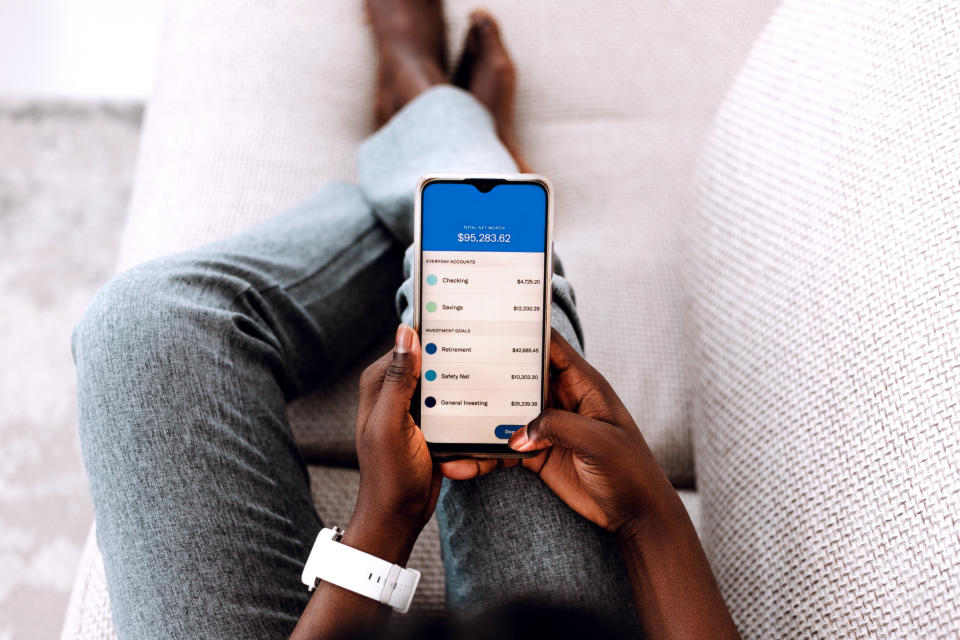I Loaned My Parents Money, But They Won't Talk To Me About When They'll Pay Me Back. What Should I Do?
Hi, world, I'm Megan. I'm the personal finance editor here at BuzzFeed, and this is the very first installment of Money With Megan, where we talk through the sticky work and money situations that keep us up at night.

I'm an elder millennial who's been writing about work and money for about six years, and I honestly love getting to share all the things I've learned in the process. In that time, I've totally transformed the way I handle my money, and I've become the one in the friend group whom people call on when they've got big questions about work and money.
Got a problem you want solved on BuzzFeed? Write to me via this anonymous form — just read the fine print at the bottom of this post first.
Today, we have a letter from a 21-year-old college student who's having some trouble getting her parents to pay back a loan. Here's what she had to say:
"I have a hard time getting money back from people who owe me, specifically my parents. I’m a college student (21, F), so the only money I’ve been making is from my internship. I understand that my parents pay for some of my things while I’m living at home, and they are both teachers who do not make a ton of money. My parents took $700 out of my account in April for repairs on my mom's car. I have my own car, so the money I gave them doesn’t apply to me."

The writer added, "They asked for it, of course, but I was already short on money, since it was the end of the semester. I can only work so much during the school week. I make $12 an hour, and we don’t work weekends, so I only work about 7–10 hours per week. Most of that money goes toward gas and groceries."
She continued, "My money is tight, so moving out after I graduate next year is going to be difficult, especially if my parents keep borrowing money with no payback. I also would like to mention that I help with groceries, let my siblings borrow my car (without charging them for gas), and pay for the streaming services my three younger siblings, parents, and I use. I don’t pay for any bills — they don’t want me to pay for any big things (insurance, phone, car) while I’m in college."

She concluded, "I’ve been waiting for my parents to pay me back like they promised, and every time I bring it up, my mom deflects the conversation or makes it my fault somehow. AND they always say I can ask for money if I need it, but knowing their financial situation, I feel bad. I don’t know how to ask for my money back without upsetting them."
My reply...
First, I want to say I'm sorry you're in this position. Asking people to pay you back is often uncomfortable, and since you need to ask your parents for payback, you're probably also working with some big emotions, power dynamics, and family history — especially since you're at a point in life where you're on the verge of becoming independent and starting out on your own.

Your parents might also be having some emotions around seeing you grow up that could be a silent factor in this situation, especially if you're the oldest sibling and they haven't been through this before. Plus, the fact that literally everything is more expensive right now is probably not helping either.

So it's going to be really important for you to approach them face-to-face in a calm moment and to keep a clear head as much as possible for this conversation. Being your most mature self and coming to them adult to adult will give you more equal footing in the negotiation.
In your letter, you mention not wanting to upset your parents. I think considering their feelings is somewhat useful, insofar as you don't want to stir up unnecessary conflict. But you also can't control their emotions. So don't think that you've failed if they get angry or upset at any time during this conversation. Sometimes when we set a new boundary with someone, they react emotionally, but that doesn't mean that they don't hear us. So focus more on what you can control, which is staying calm, being direct, and making your case rationally.

You might be tempted to drop hints or beat around the bush a little bit, but be direct and say it clearly so there's no room for confusion. You might open the conversation with something like, "Hey, I've been thinking about the $700 I loaned you for the car, and I'd really like to talk about making a plan for when you can pay me back."

Next, let them know why it's so important to you to get paid back. In your situation, I'd say something like, "As you know, I'm working through school and saving up so I can get my own place after I graduate, and I also contribute groceries to the household. I'd feel much more comfortable with my financial situation if we could have an open and honest conversation about when I'll be paid back."
And here's where you may need to compromise. As I'm sure you know, $700 is no small sum. It could be really difficult for your parents to find it in their budget to pay you back immediately. But if you asked for, say, $100 a month until you're repaid, that could be much more manageable for them. And since you're working toward a long-term goal, an installment plan makes sense for you, too.

If you're able to agree on a payment plan, put it in writing and sign it with your parents. Having a document you can refer back to is always a good practice in money matters; plus, it sets up accountability, which so far has been lacking.

You might also find that your parents want to revisit the agreement that they don't want you paying for any bills during school. With costs rising everywhere, I'm willing to bet they're feeling more financial pressures now than when you first enrolled. Maybe they feel bad about asking you to contribute more on a regular basis, and this "loan" was an indirect way to get you to contribute more. So before you talk, think about what you'd be comfortable offering. If this is the case, you might tell them, "I'd be willing to pitch in $X amount more for household expenses/make a minimal rent payment/cover my phone bill going forward once I've been paid back."
If they don't agree to a payment plan or refuse to enter an open discussion, you unfortunately might have to accept that they just aren't going to pay you back. I hope this isn't the case, but as with all loans to friends or family, it's a possibility. If they won't pay this loan back, I would definitely consider any future requests to "borrow" money as gifts — which you should give only if you can afford not to get paid back.
I also have to address the fact that your parents can get into your bank account. It sounds like so far they've only withdrawn funds with your permission, but it honestly makes me uneasy for you that they have this access to begin with.

I wouldn't suggest taking action on this until after you've had a discussion about the loan. But I think you should open an account at another bank that your parents can't access and close your current account before you move out on your own. It doesn't sound like this is the case in your family, but I've seen enough horror stories from others who've had family members financially abuse them or use their identities that I think it's always better to be safe than sorry.

Unless your parents take funds without consulting you, I'd wait to close this account until after the loan situation is more resolved. Shutting them out in this moment could provoke an emotional response that would make negotiating your loan payback much more challenging. But please get your own account that they cannot access before you move out!
And while we're on the subject of new accounts, if you're not using one already, put your savings in a high-yield savings account. These are accounts that pay higher interest rates on your balance, so you get a little more out of saving your hard-earned cash. BY THE WAY, interest rates have been rising, so using one of these accounts in 2022 is more beneficial than it's been in YEARS. Seriously — this goes for everyone — make sure your savings are working for you!

And that's all the advice I have for today! If you have a sticky work or money situation that you'd like some advice on, write to me via this anonymous form. And you can also follow me on Twitter or LinkedIn.
All requests for advice sent to me are for publication on BuzzFeed only. I do not respond to individual messages or provide any advice one-on-one. Please don't submit a question unless you want it published on BuzzFeed. We'll always keep you anonymous. You must be 16 or older to submit.
